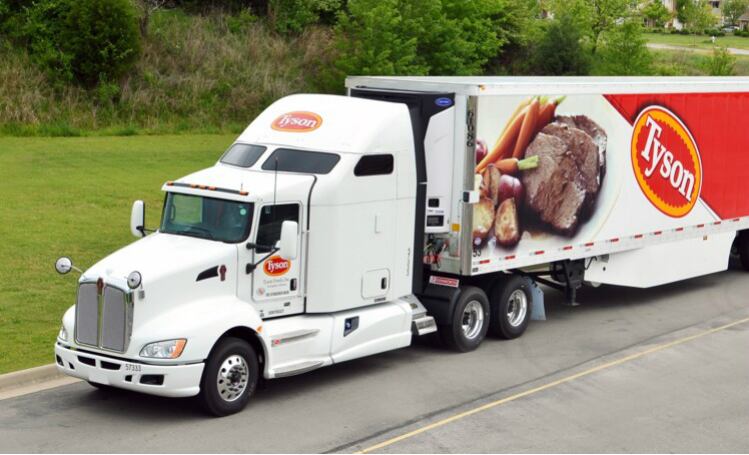In 2017, over two-thirds of ExxonMobil’s shareholders, led by some of the world’s largest investors, voted against management to demand an assessment of climate policies on its business. It was an unprecedented vote; a similar resolution in 2016 had failed after securing just 38% of investor support.
The vote heralded a tipping point in investor engagement on climate issues, and is another welcome sign that mainstream investors are getting serious about the financial implications of environmental and social issues.
While climate change dominates the landscape, water risks are increasingly on the investor agenda. In 2016, the Farm Animal Investment Risk & Return (FAIRR) organisation, which is backed by investors with over US$4.1 trillion in assets, identified water scarcity and pollution as key risks for investors with a stake in livestock production. Shareholders are paying more attention as awareness builds on the meat industry’s extensive water footprint and poor record on water management.

Tyson Foods is the most visible example of a firm facing pressure from its own investors on its water record. At Tyson’s upcoming AGM on 8 February, shareholders will urge the board of directors to adopt and implement a water stewardship policy to reduce the risks of water contamination.
A major contamination incident that resulted in a $2m fine in 2017 has probably motivated the proposal. Since 2003, Tyson has had to pay at least $14m in fines and settlements due to environmental pollution, according to documents from the US Department of Justice and Tyson Foods. Some believe the price Tyson has had to pay for environmental incidents during this period is even higher, although the meat processor has disputed this claim.
Beyond fines, however, there is growing investor recognition that the lack of water stewardship is threatening not just the business models of companies like Tyson, but also their licence to operate.
A water crisis is brewing for Tyson
Tyson’s 2017 fine was related to a severe chemical spill in Missouri, which killed more than 100,000 fish nearby. It came in the wake of an NGO report that found Tyson “to be the dominant meat company in all the regions suffering the worst environmental impacts from industrial meat and feed production – from grassland clearing in Nebraska, Iowa and Kansas, to manure and fertiliser pollution pouring into waterways from the Heartland down to the Gulf states”.
Nitrate pollution from soy and corn cultivation – primarily grown to feed livestock farms, including those of Tyson – has also been accused for creating the largest-ever dead zone recorded in the Gulf of Mexico. However, the meat processor has disputed this claim, calling it a “misleading characterisation”.

These incidences are having an impact on Tyson’s licence to operate. In October 2017, the company was forced to drop its plans to build a $320m poultry processing complex in north-east Kansas following widespread community protests over pollution, animal welfare and the treatment of its staff.
Tyson said it accepted an invitation to build a new poultry complex in western Tennessee, where it received strong state and local support. The company said it would continue to evaluate potential options in Kansas and other states for an additional poultry complex.
Obviously, these problems go beyond Tyson; the livestock industry on the whole has a poor record on water management. According to a recent report from sustainability non-profit organisation Ceres, none of the six US meat giants are disclosing water quality data at an operational level and none are reporting goals to reduce wastewater discharges beyond what is required by law. Tyson Foods, Perdue Farms and Pilgrim’s Pride – which is also facing a shareholder resolution on water stewardship this year – were among the food and agriculture industry’s worst performers.
Tyson’s water stewardship policy
During the 2017 fiscal year, Tyson operated 36 full-treatment and 55 pretreatment wastewater facilities in North America. The majority of the water it uses in direct operations is treated and returned to the environment. Technology and reclamation systems are in place to conserve water, as Tyson aims to reduce water usage by 12% by 2020.
Water management is now a business imperative
FAIRR has analysed a variety of risk factors relating to the livestock industry and, across the board, found a lack of transparency and disclosure.
Investors are now mobilising on water, specifically because they see it as an operational risk for the sector. New Zealand, one of the world’s largest dairy exporters, has seen a series of clashes between communities and the dairy industry over water pollution. Communities have opposed large irrigation schemes to expand dairy production, principally due to concerns over polluted waterways. In August 2017, legislators scrapped plans to build a $330m dam in the Hawke’s Bay area after vocal opposition to the dam’s role in expanding dairy production.
Meanwhile, in Iowa, advocacy groups and politicians have pushed for a moratorium on creating or expanding animal feeding operations until the state’s impaired waterways shrink from 750 to 100.
Pollution is not the only concern. Agriculture is responsible for around 92% of the human water footprint, and livestock production accounts for nearly one-third of that use. On a per gram of protein basis, beef’s water footprint is six times that of pulses, while milk, eggs and poultry are around 1.5 times more. Given these impacts, it is little wonder that companies like Tyson and Cargill are looking to diversify their portfolios through investments in alternative and more sustainable sources of protein: Tyson has a 5% stake in Beyond Meat, a plant-based meats company; and both Cargill and Tyson have invested in Memphis Meats, a start-up that produces real meat directly from animal cells, without animals. Without proper management and a more diversified portfolio, livestock companies not only face a future of supply chain disruptions, they are also contributing to water scarcity worldwide.
Investor engagement can drive better water management
In 2016, Ceres and fellow non-profit body ICCR (the Interfaith Centre on Corporate Responsibility), backed by an investor coalition of $1.2 trillion, urged Cargill, JBS, Perdue Farms and Smithfield Foods, four of the largest producers in the meat industry, to undertake risk assessments on water quality. Since then, Perdue has invested $68m to launch a large-scale poultry litter recycling operation to prevent nutrient pollution, and expanded this with an additional $12m in 2017. Smithfield Foods has set soil policies to reduce nitrate pollution from feed inputs, and is lending equipment to growers to identify real-time fertiliser needs free of charge.
As Tyson’s AGM approaches, the firm will be under scrutiny to see how they respond to shareholders. Investor support for the water resolution has slowly crept up over two years, from nearly 12% in 2016 to 15% in 2017. It remains to be seen if and when livestock’s investors will reach their own ‘tipping point’ on this issue. For Tyson and its peers, it’s a useful wake-up call from the capital markets to manage risks that are slowly eroding their licence to operate.
Aarti Ramachandran is head of research and corporate engagement at investor network FAIRR.
